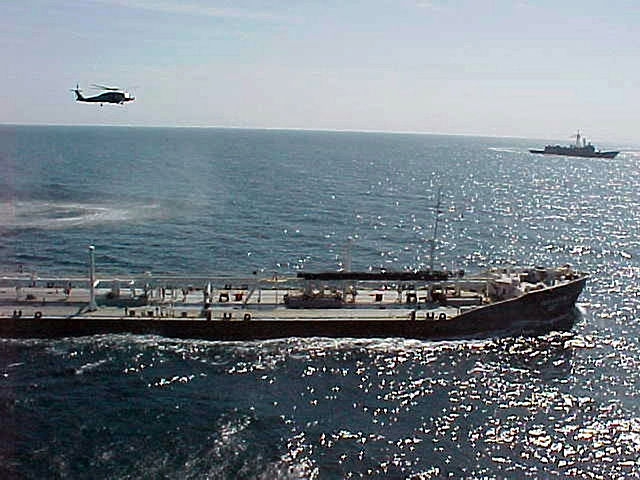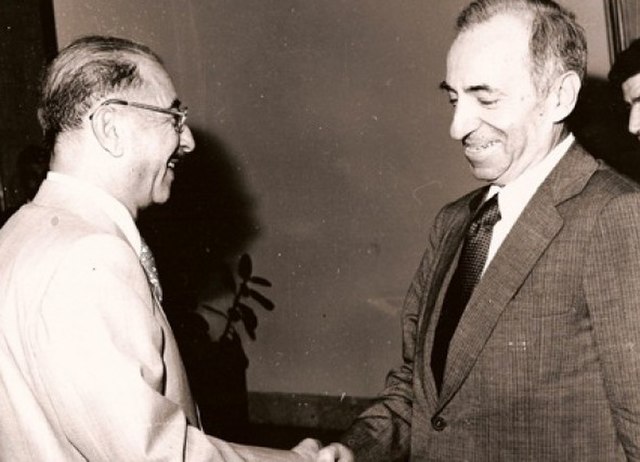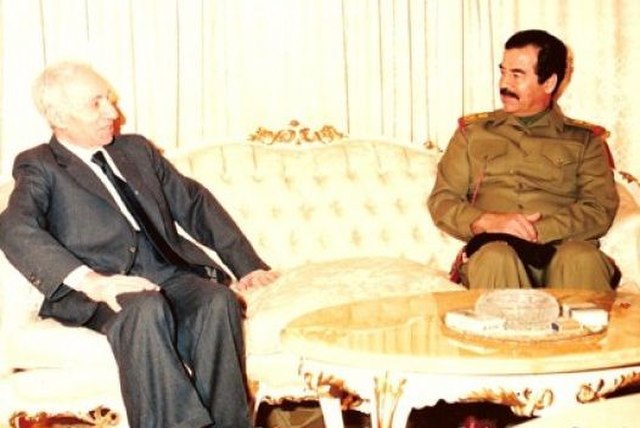International sanctions against Iraq
On 6 August 1990, four days after the Iraqi invasion of Kuwait, the United Nations Security Council (UNSC) placed a comprehensive embargo on Iraq. The sanctions stayed largely in force until 22 May 2003, and persisted in part, including reparations to Kuwait. The original stated purposes of the sanctions were to compel Iraq to withdraw from Kuwait, to pay reparations, and to disclose and eliminate any weapons of mass destruction (WMD).
An American helicopter shadows the Russian oil tanker Volgoneft-147
Protesters in Washington DC against sanctions and invasion of Iraq, 2002 or 2003
Ba'athist Iraq, officially the Iraqi Republic (1968–1992) and later the Republic of Iraq (1992–2003), was the Iraqi state between 1968 and 2003 under the rule of the Arab Socialist Ba'ath Party. This period began with high economic growth, but ended with the country facing severe levels of socio-political isolation and economic stagnation. By the late 1990s, the average annual income had decreased drastically due to a combination of external and internal factors. UNSC sanctions against Iraq, in particular, were widely criticized for negatively impacting the country's quality of life, prompting the establishment of the Oil-for-Food Programme. The Ba'athist period formally came to an end with the 2003 invasion of Iraq, and the Ba'ath Party has since been indefinitely banned across the country.
Ahmed Hassan al-Bakr was de jure leader of Iraq from 1968 to 1979.
Adnan Khairallah, Iraqi Defense Minister, meeting with Iraqi soldiers during the Iran-Iraq war.
Ahmed Hassan al-Bakr (left), the Regional Secretary of the Iraqi Ba'ath, shaking hands with Michel Aflaq, principal founder of Ba'athist thought, in 1968.
Saddam Hussein (right) talking with founder of Ba'athism and Ba'ath Party leader Michel Aflaq in 1988.






